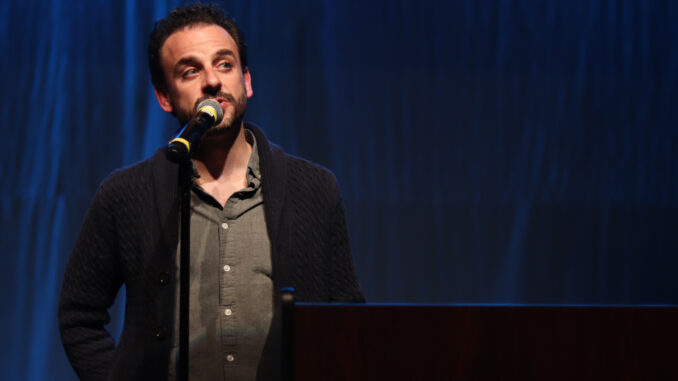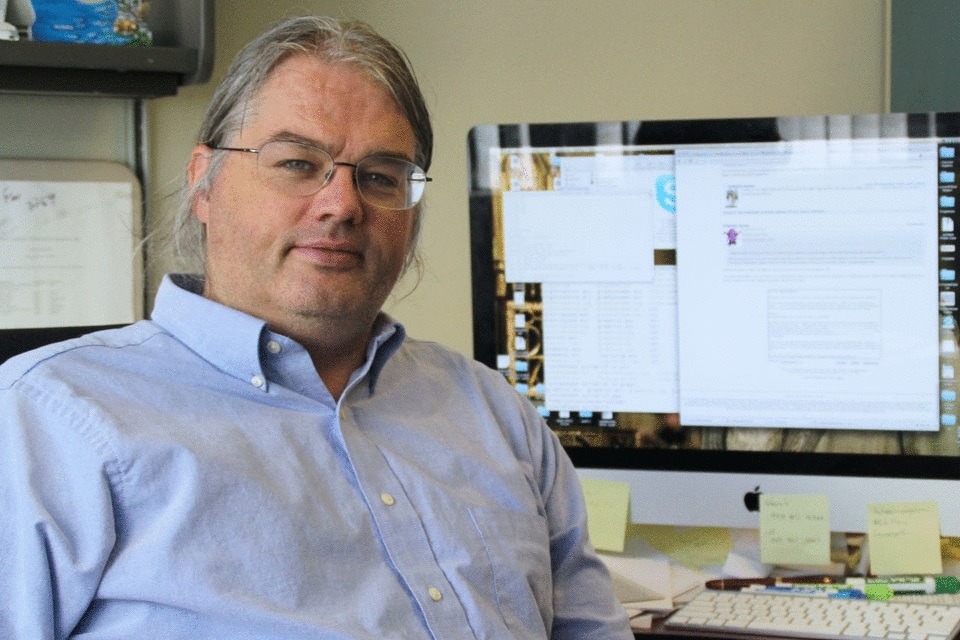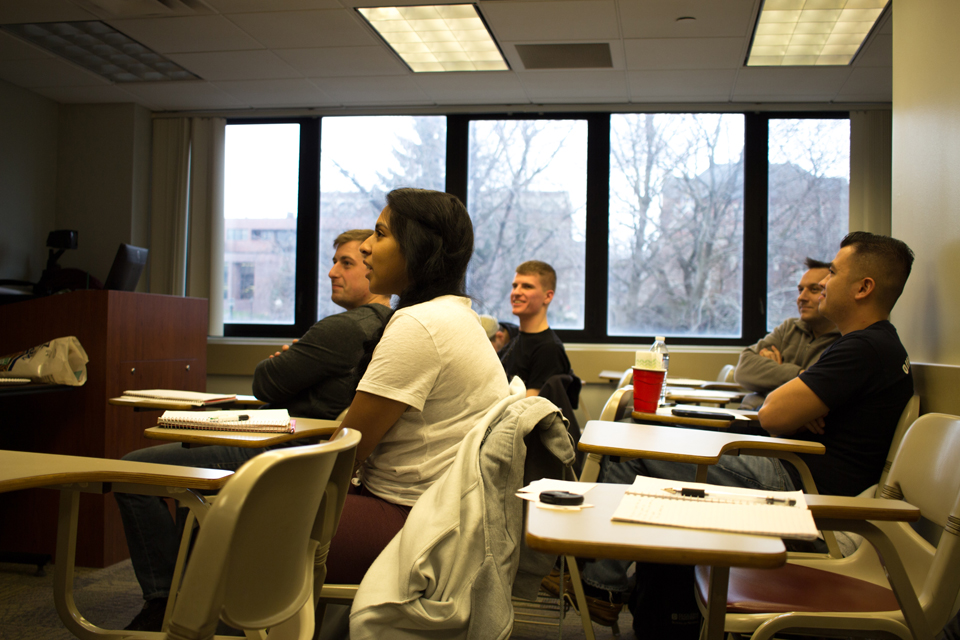
by Emma Polen | features editor
April 7, 2022
Duquesne’s Coffee House Readings are back in-person for the first time since pre-pandemic, just in time for an exclusive reading event that brought alumni back from across the country.
Members of the present and past Duquesne community gathered inside the Genesius Theater on Wednesday to listen to four Duquesne English alumni present works written throughout their careers. An ASL interpreter was present to illustrate the images of each poet in an inclusive manner.
While all four poets studied at Duquesne, they have since taken their writing talents into a variety of fields. Their invitation to the reading proves, though, that they maintained a connection to their writing in whatever path they chose.
Brian Tierney was featured at the reading for his recent debut collection of poetry, “Rise and Float.” His poems touched on his personal, emotional experiences.
Tierney credits his Catholic upbringing for part of his poetic success.
“Catholicism believes in the enchantment of words,” he said at the reading.
In addition, the writer discussed the heavy topic of suicide — something he admitted had plagued his life and the lives of others close to him. While some of the poems in “Rise and Float” discuss the dark side of deep personal thoughts, the book is also about “deciding to live,” he said.
Tierney’s poetry work followed him to San Francisco, where he teaches a poetry workshop at a community organization part-time.
In college, Tierney studied creative, academic and journalistic writing, which included being an editor for the Duquesne Duke where he met his wife.
“Now, [writing styles] are all part of how I approach talking about writing, and I’m able to talk about different kinds of writing, at a higher level than I would have if I had only done maybe one of those things,” Tierney said.
Specifically, Tierney discussed how his journalistic experience influenced the way in which he maneuvers writing about his experiences.
“What I learned in journalism school is how you pay attention to the world,” he said. “I think that has influenced my poems. And the kind of presence of my creative mind that has to do with the kind of journalistic seeing — you’re seeing what other people aren’t seeing.”
Another speaker at the Coffee House Reading, Justin Kishbaugh, is now a professor of legal writing at Roger Williams University in Bristol, R.I.
He noted the similarity between his studies of law and poetry.
“Law, like poetry — you’re trying to locate an ideal abstraction in sort of concrete particulars and specific facts,” Kishbaugh said. “Everything revolves around analogy. And you want to create maximum meaning in the fewest words.”
Kishbaugh presented poems from a 20th century classification of poetry called imagism, which he wrote his dissertation about back in his collegiate years. His reading contained a unique forward motion coupled with rhythmic flow of his poetic measures.
One poem Kishbaugh read, “Black Water,” was written back in 2005 and dedicated to those dealing with the aftermath of Hurricane Katrina. It was one of the first poems he wrote and read as a Duquesne student, he said.
The premiere speaker at the Coffee House Reading, Elizabeth Savage, is a professor of English and co-director of Women’s & Gender Studies at Fairmont State University.
Savage recalled the encouragement she received while at Duquesne while finding her passion in an English career.
“Duquesne’s English faculty, especially Dr. Kinnahan and Dr. Michael, prepared me to be a professional in the field,” Savage said in an email. “Their courses and supportive responses to my writing gave me a strong foundation to continue my work as a feminist critic, poet and editor.”
Savage’s collection of poems she read at Genesius Theater represented a range of poetry she wrote over the past couple of years. Themes of long-lasting friendship and wilderness played out in her readings.
“The poems are from a new manuscript, which is an expanded version of the upcoming chapbook “Noncallable Debenture,” which Dancing Girl Press will publish this summer,” she said.
Not all of the alumni readers have wandered far from their creative writing roots at Duquesne. Cameron Barnett has remained in Pittsburgh as a teacher and poet.
He currently serves as an editor for Pittsburgh Poetry Journal and as a board member for Write Pittsburgh, according to his website.
Barnett read five pieces of poetry from his first book, “Drowning Boy’s Guide to Water.” His favorite piece is titled “Super Nova.” The poem explores the relationship he had with a child he babysat.
“Super Nova” is representative of Barnett’s dedication to speaking about the Black man’s experience in modern-day America.
“He reminds me how close we are to an explosion,” Barnett read in “Super Nova.”




